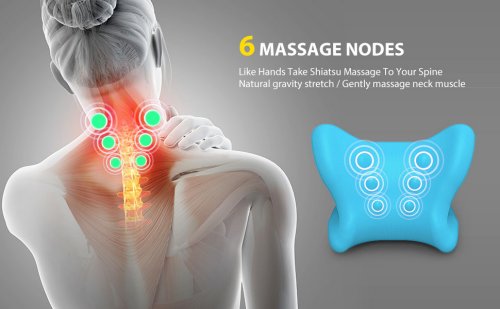The Influence of Stress And Anxiety on Neck Pain: Approaches for Decreasing Stress and Discomfort
In today's busy world, it's no trick that stress has become a common variable in the start and worsening of neck pain. Join us on a journey to unravel the impact of anxiety on neck discomfort and find reliable means to reduce discomfort and enhance overall quality of life.
Understanding Stress-Related Neck Pain
Stress-related neck discomfort can show up as tension, stiffness, or pain in the neck and shoulder location. The connection between tension and neck pain exists in the body's physiological response to stress and anxiety, which can result in muscular tissue tension and rigidity in the neck muscle mass.

Identifying Common Stress Areas
Often experienced by people under stress, tension areas in the body can supply useful understandings right into the physical symptoms of emotional stress. One usual stress location is the neck, where stress typically materializes literally. Stress frustrations, rigid neck muscle mass, and limited series of movement prevail signs and symptoms of stress-related neck stress. The shoulders are another typical location where stress accumulates. Anxiety can create the muscular tissues in the shoulders to tighten, causing discomfort and pain. Furthermore, the top back is prone to tension build-up, particularly in people that experience persistent stress. Poor posture and extended resting can exacerbate tension in this field. The jaw is additionally an usual location for stress-related tension, as numerous individuals squeeze their jaw or grind their teeth when emphasized. Being mindful of these typical stress areas can aid individuals identify the physical indicators of anxiety and take steps to resolve them prior to they escalate right into persistent pain or discomfort.
Implementing Leisure Strategies
Leisure strategies are valuable devices for lowering neck pain triggered by stress and anxiety. Additionally, tasks like yoga exercise and tai chi integrate both physical motion and leisure, making them reliable practices for decreasing anxiety and neck discomfort. By incorporating these relaxation methods into your everyday regimen, you can aid manage tension levels, minimize stress in the neck, and alleviate discomfort associated with stress-induced neck pain.
Integrating Self-Care Practices
Integrating self-care practices is crucial for maintaining overall well-being and managing stress-related neck pain effectively. Taking part in regular exercise, such as gentle stretching exercises or yoga, can aid alleviate tension in the neck and shoulders. Practicing excellent posture throughout the day and taking constant breaks from prolonged resting or display time can additionally protect against pressure on the neck muscular tissues.
In addition, focusing on ample rest and developing a constant sleep reference routine can add dramatically to reducing tension levels and advertising leisure. Developing a soothing bedtime routine, such as reviewing a publication or taking a cozy bath, can help prepare the mind and body for relaxed sleep. Additionally, maintaining a balanced diet regimen abundant in nutrients and staying hydrated can sustain general health and wellness and decrease swelling that might worsen neck pain.
Incorporating mindfulness methods, such as deep breathing exercises or reflection, can aid handle stress and advertise his comment is here relaxation. Requiring time for oneself, taking part in pastimes, and establishing limits to protect individual time are also vital elements of self-care that can contribute to minimizing tension and minimizing neck pain.
Looking For Professional Assistance
How can people properly attend to persistent neck discomfort that is impacting their everyday life and well-being? Seeking professional assistance can be an important action in managing and alleviating neck pain. Consulting with healthcare experts such as chiropractors, physical therapists, or orthopedic professionals can offer beneficial insights and individualized therapy plans. These experts can conduct extensive evaluations to detect the underlying reasons of neck discomfort and advise proper interventions.
Chiropractic doctors specialize in spinal adjustment strategies to improve alignment and decrease tension in the neck location. Physiotherapists provide targeted stretches and exercises to enhance muscle mass, enhance versatility, and improve general neck function. Orthopedic experts can supply innovative medical treatments such as shots or medical choices for serious situations of neck discomfort.
Verdict

Stress-related neck pain can materialize as tension, tightness, or discomfort in the neck and shoulder area. The connection between stress and neck pain exists in the body's physical response to stress, which can result in muscle stress and rigidity in the neck muscular tissues. Stress frustrations, rigid neck muscle mass, and restricted variety of movement are typical signs of stress-related neck stress. By incorporating these relaxation techniques into your daily regimen, you can aid handle anxiety levels, reduce tension in the neck, and reduce discomfort linked with stress-induced neck discomfort.
